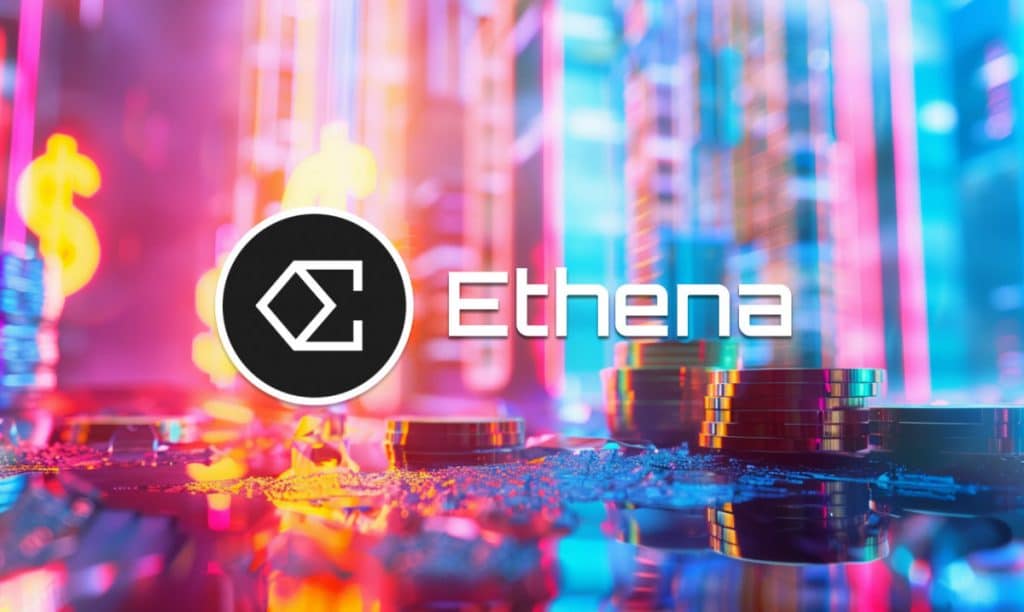Ethena Labs’ USDe $50M Deposit Pool Reaches Limit Again After 24 Hours of Launch


In Brief
USDe stablecoin developer Ethena Labs initiated new $50 million USDe deposit pool which again quickly reached its limit capacity.

Decentralized finance platform Ethena Labs, the developer of the USDe stablecoin, recently announced the initiation of a new $50 million USDe deposit pool, which quickly reached its capacity.
Since its launch, Ethena has experienced significant inflows, although there has been some criticism regarding the model it employs to generate an annualized 27% yield for holders of its USDe tokens. Up to this point, it has functioned as a beta platform, accessible only to a closed group.
According to data from its official website, the current total value locked (TVL) in the Ethena protocol has reached $342 million, with more than $90 million added after the platform became accessible to the public on Monday. Additionally, the USDe Curve pool, taking part in the ‘Shard Campaign’ event, has also temporarily hit its deposit limit. Following a previous official announcement, the project plans to incrementally raise the limit in the future.
USDe is an Ethereum-based stablecoin backed by derivatives, employing a ‘delta neutral’ hedging strategy across both centralized and decentralized platforms to maintain price stability.
Users have the option to deposit stablecoins, including tether (USDT), frax (FRAX), dai (DAI), Curve USD (crvUSD), and mkUSD, in exchange for Ethena’s USDe, which can subsequently be staked. Unstaking involves a seven-day waiting period. The 27% reward is calculated on a rolling seven-day basis and is subject to change weekly based on underlying factors. Staked USDe tokens can also be provided to other DeFi platforms to generate an additional yield.
Last week, Ethena Labs concluded its seed extension funding round, securing $14 million from investors, including Dragonfly among others. The company also garnered support from Binance Labs after participation in its Season 6 incubation program.
Ethena Labs Addresses Concerns around USDe Stablecoin
While the flows have been significant, certain parts of the crypto community suggest that the concept behind USDe has been previously tested and failed to gain traction. Users have expressed particular concerns about inverted yields and risk management.
Subsequently, Conor Ryder, Ethena Labs’ Head of Research, addressed some of these concerns asserting that the protocol had implemented its parameters after thorough historical testing, mitigating far-fetched risks.
According to Conor Ryder, as the existing high demand for going long on Ethereum (ETH) the futures rates for shorting the cryptocurrency are anticipated to stay high.
Deep pools of capital won’t lend the capital on the short side of that long leverage. “Negative funding rates are considered a feature, not a flaw, of the system. USDe has been designed with negative funding in mind,” he said.
Despite these controversies, Ethena Labs’ USDe stablecoin continues to attract substantial interest from users, as evident in recent developments.
Disclaimer
In line with the Trust Project guidelines, please note that the information provided on this page is not intended to be and should not be interpreted as legal, tax, investment, financial, or any other form of advice. It is important to only invest what you can afford to lose and to seek independent financial advice if you have any doubts. For further information, we suggest referring to the terms and conditions as well as the help and support pages provided by the issuer or advertiser. MetaversePost is committed to accurate, unbiased reporting, but market conditions are subject to change without notice.
About The Author
Alisa, a dedicated journalist at the MPost, specializes in cryptocurrency, zero-knowledge proofs, investments, and the expansive realm of Web3. With a keen eye for emerging trends and technologies, she delivers comprehensive coverage to inform and engage readers in the ever-evolving landscape of digital finance.
More articles

Alisa, a dedicated journalist at the MPost, specializes in cryptocurrency, zero-knowledge proofs, investments, and the expansive realm of Web3. With a keen eye for emerging trends and technologies, she delivers comprehensive coverage to inform and engage readers in the ever-evolving landscape of digital finance.



















































